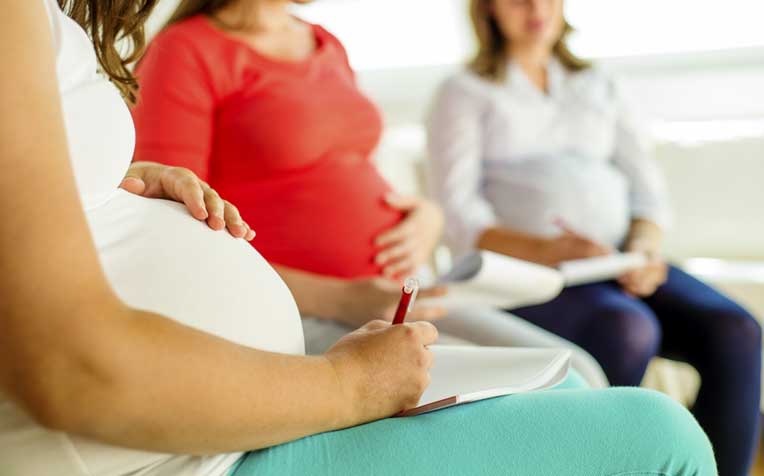HealthXchange will NEVER ask you to transfer money over a call. If in doubt, call the 24/7 ScamShield helpline at 1799, or visit the ScamShield website at www.scamshield.gov.sg.

Going for counselling and psychological therapy are ways to cope with depression during pregnancy.
What to do when depression hits at different stages of the pregnancy
If you are pregnant and depressed, you might hesitate to get help for your depression because of the fear of what others might think of you, and concerns about the effects of any prescribed medication on your baby. However, you should not hesitate since the management of antenatal depression involves looking at:
- What are the contributing factors
- Gathering support for you
- Counselling and other forms of psychological therapy
- Only when the depression is severe will medication be recommended. And there are certain medications available that are safe for pregnant women and the baby.
Treating depression in the first trimester
The first trimester is often a difficult time with hormonal changes, morning sickness and tiredness. During this time, gathering assistance such as arranging for the family to help with the care of the older child or household chores will give you a much needed break and some rest. Therapy and counselling are often useful too, as they help you to talk about anything that stresses you and work through any difficult emotional conflicts.
Treating depression in the second and third trimester
In the second trimester, antidepressants may be used if the depression is considered moderately severe, and other methods have not worked to improve the mood. In the last few weeks of pregnancy, it is recommended that antidepressants be gradually tailed off. This is because some medications may cause withdrawal symptoms in the newborn baby.
If you have a pre-existing depressive illness
If you suffer from a pre-existing depressive illness that is severe, and you require long-term use of antidepressants, after taking the risks into consideration, your doctor may recommend that you remain on the medication throughout your pregnancy. The minimal possible dose will be used and you will be kept under close supervision, in addition to receiving other treatment modalities appropriate for you.
Ref: U11
Contributed by
Related Articles
Conditions & Treatments
Public Events
Get the Health Buddy App
© 2025 SingHealth Group. All Rights Reserved.


















 Get it on Google Play
Get it on Google Play